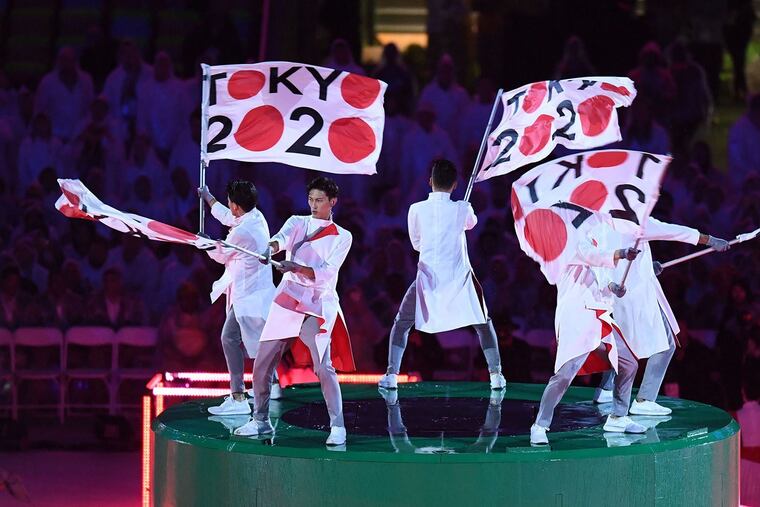Time difference in Tokyo causing familiar problem for NBC’s 2020 Olympics coverage
Plus, you'll still need a TV log-in to stream events live.

NBC has just under a year to prepare the 2020 Summer Olympics in Tokyo, its second of three straight Olympics broadcasts from Asia.
When the 2018 Winter Games in Pyeongchang, South Korea kicked off the run, NBC had to convince American TV viewers to stay up late or wake up early to catch events on a 13-hour time difference from the east coast. They deployed a lot of weapons: televising NBC’s flagship primetime show from coast to coast for the first time, streaming that broadcast online for the first time in Winter Olympics history, and concurrent coverage of other events on NBCSN.
In the end, though, primetime broadcasts of the Pyeongchang Games delivered the lowest average viewership since tracking began in 1988.
Tokyo is in the same time zone is Pyeongchang, which means NBC faces the same challenge. It will do so again in 2022, when Beijing (on a 12-hour difference) hosts the Winter Olympics. The International Olympic Committee is helping its longtime (and big-spending) American rightsholder: as with the 2018 games and Beijing’s 2008 Summer Games, some high-profile events are scheduled for the morning in Asia so they’re in prime time in the U.S..
“Even though we’re 13 hours apart from these Asian time zones, we can have a fair amount of coverage, especially in prime time,” said NBC Olympics president Gary Zenkel. “Swimming is in the morning in Tokyo, so it’s perfectly primed for a 9, 10 o’clock [p.m. here] start."
Star-studded gymnastics will go at night in Japan, but that isn’t as bad for American viewers as it could be. A 7 p.m. start in Tokyo is 8 a.m. on the U.S. east coast, and the later an event goes, the more Americans will be awake for it.
“I think you’re better off measuring Tokyo 2020 against both the 2000 Sydney and 1988 Seoul Games," said Patrick Crakes, a media industry consultant and former executive in Fox Sports’ programming department. “We’re probably looking at some all-in viewing figures that are clustered around the lower end of the historic Olympics range.”
Crakes would rather put those figures in the context of the present TV landscape, not the past.
“The 2020 Olympics will out-rate everything else on every platform for 17 days, will compare favorably to other peer marquee events like the NBA Finals and the World Series, and will have multiple Top 10 shows for the 2020 calendar year,” he said. "Which is what actually matters to distributors and advertisers.”
NBC still has plenty of plans still to finish for next summer, including hiring announcers. Zenkel also said there hasn’t been a decision yet on whether the opening ceremony will be televised live. The network hasn’t done it since the 2010 Winter Olympics in Vancouver, and for a Summer Olympics since 1996 in Atlanta. After years of fans’ complaints, NBC finally conceded in 2018 by streaming the Pyeongchang opening ceremony live online.
But one big plan is in place: Zenkel confirmed to The Inquirer that all of the live streams of events on NBC’s Olympics website will again require authentication through participating pay-TV providers. You won’t be able to purchase an Olympics streaming package. The authenticated will be free of charge if you have access, but if you don’t have to a cable, satellite or TV streaming subscription service, you’ll be shut out. Soome of the big online streaming services that participated in 2018 included YouTube TV, Sling TV, FuboTV, Hulu and Playstation Vue.
NBC has gone big on paid subscription streaming for sports in recent years, especially for content not aired on its TV channels. The NBC Sports Gold platform offers packages for English Premier League soccer, international track and field, cycling including the Tour de France, rugby, golf and a host of other sports.
The network will not add the Olympics to the list, though, and Zenkel expects that to remain the case for a while.
“I can’t predict the future, but right now the Olympics lives within the cable ecosystem and it has been thriving,” he said. “So I don’t see that changing.”
While it might not change overall, NBC put a hole in its own wall: Twitter will stream a portion of NBC’s prime time show or NBCSN’s live coverage of another event free of charge, with the featured event determined through a user poll.
Also of note, the specialty channels for live basketball and soccer games that NBC offered to TV providers in 2008, 2012 and 2016 have been discontinued.
Zenkel said those channels “grew up in an era where not everybody had the broadband connection. Today it’s duplicative.”
That is especially true for Comcast subscribers who have X1 boxes, where linear TV broadcasts and online streams of events are presented side by side. Of course, the company as a whole is thrilled by that because Comcast owns NBC.
“We are working with other gateways of programming and trying to inspire them as well to organize Olympic content and to create clear pathways to Olympic content," Zenkel said.